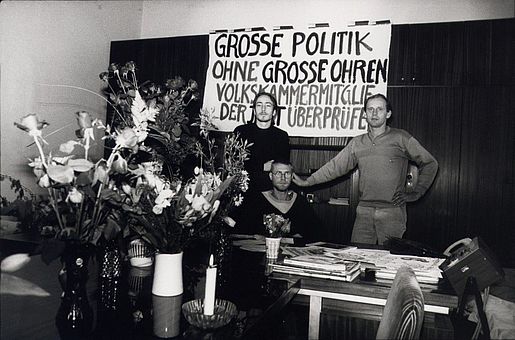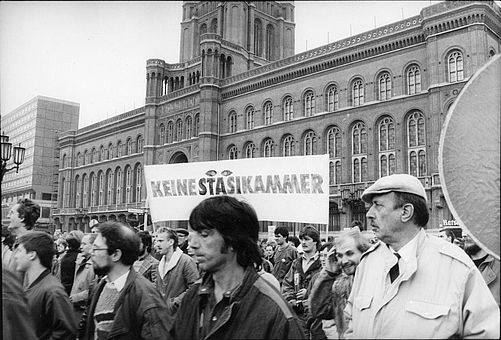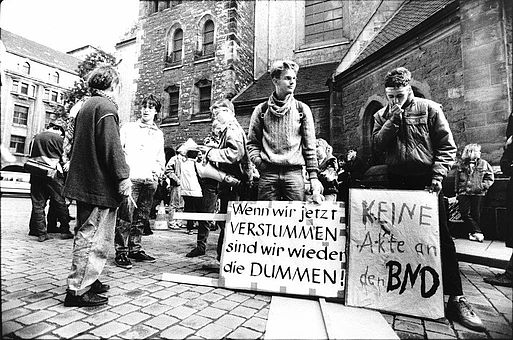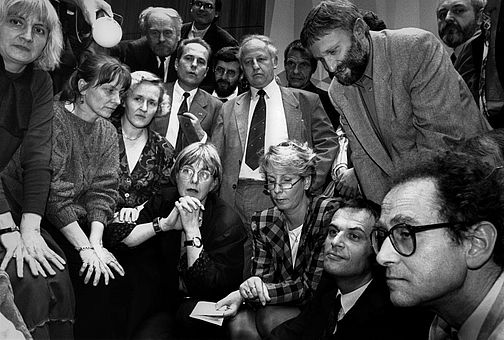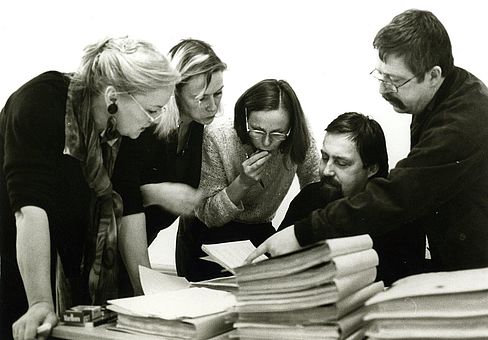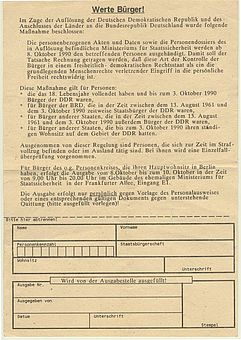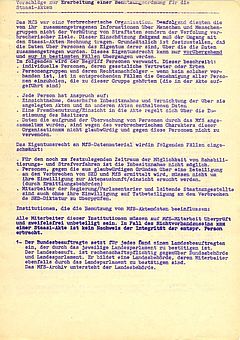
- Home >
- Unity >
- The completion of unification >
- The files are ours
The Ministry of State Security (Stasi), like all political and state institutions and organisations in the GDR, was not publicly accountable. The Stasi kept files on four million East Germans and two million West Germans - which offered a unique opportunity for a glimpse behind the scenes of the system, at least retrospectively.
From spring 1990 fresh reports of Stasi crimes appeared continually in the media. Time and again, people in responsible positions were exposed as informers. A specially-convened GDR government commission and a People's Chamber committee drafted a law on handling the Stasi files, stipulating that the files should not be destroyed and everybody affected by Stasi surveillance should have access to them.
After heated debate the law was passed in August, but was not included in the Unification Treaty because West Germany wanted to keep the files closed. Massive protests by civil rights activists, which enjoyed widespread public support, eventually achieved a legal solution along the lines of the People's Chamber law. The Stasi Files Law of December 1991 provided an important basis for understanding how the SED dictatorship operated.
